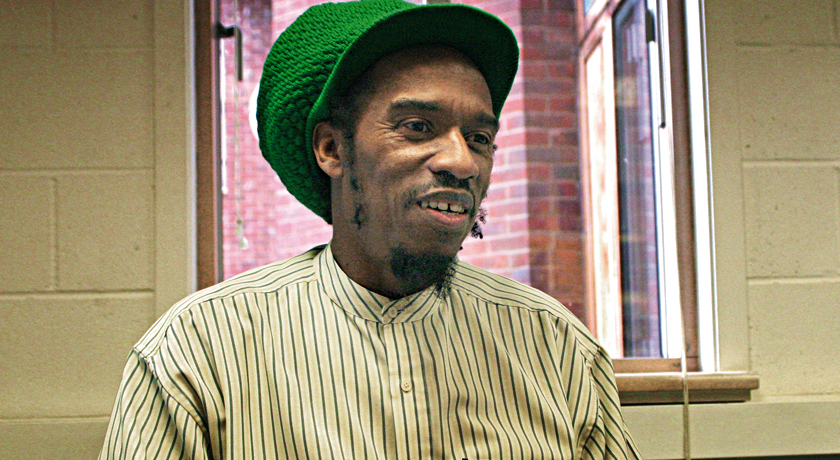 Reform magazine's Charissa King caught up with the celebrated poet and activist Benjamin Zephaniah at his Brunel University office in Uxbridge.
Reform magazine's Charissa King caught up with the celebrated poet and activist Benjamin Zephaniah at his Brunel University office in Uxbridge.
It’s 2011, and a group of students are in heated debate. ‘Benjamin Zephaniah’s at this university,’ says one. ‘You’re telling lies!’ says another: ‘Zephaniah’s a rebel – he wouldn’t be in a place like this!’ ‘No it’s true! I’ve seen him!’
Meanwhile, the man being discussed is listening in to the argument, from his office window overhead.
To be fair to those students, Zephaniah took an unusual route to professorship. Kicked out of school aged 13, dyslexic and unable to properly read or write, he got into trouble with the police and was incarcerated before deciding to leave for London, to focus on writing and performing dub poetry.
Zephaniah went on to achieve international fame and rejected an OBE offered by Tony Blair’s government in 2003, in protest against Britain’s role in the slave trade and the Iraq war.
Your first poetry performance was initiated by your mum, in church, when you were 10 years old. What was church like for you at the time?
The first church I knew was 55 Bevington Road, Aston. It was in someone’s front room. A Pentecostal church we used to call Triumphant Church of God. In those days, I knew many black churches but none of them had a building, they were all in different rooms. Every year we’d have a convention, where the churches get together, in either a hall or a community centre. I can remember all the songs, tambourines… The thing I remember most of all, is the speaking in tongues. Me and my brother used to mock them a bit: ‘Does God talk like that?!’ We could mimic them.
It wasn’t just about the worship, it was about community and coming together. Once they stopped doing the church bit, it was talk about ‘back home’ and ‘How’s so and so doing?’ and ‘How’re your children doing?’
Some of the preachers were so charismatic, so convincing. If you didn’t believe a word they were talking about before, when you see them… I mean, they’re working up a sweat! I’m convinced it’s where a lot of my poetry comes from – the techniques they use, that’s what I use in my poetry. There were some real characters. You’d say: ‘Wait till this man comes to preach! When he preaches, he’s got so much style.’
Read more of this article, published in the February edition of Reform. You can also subscribe here.




